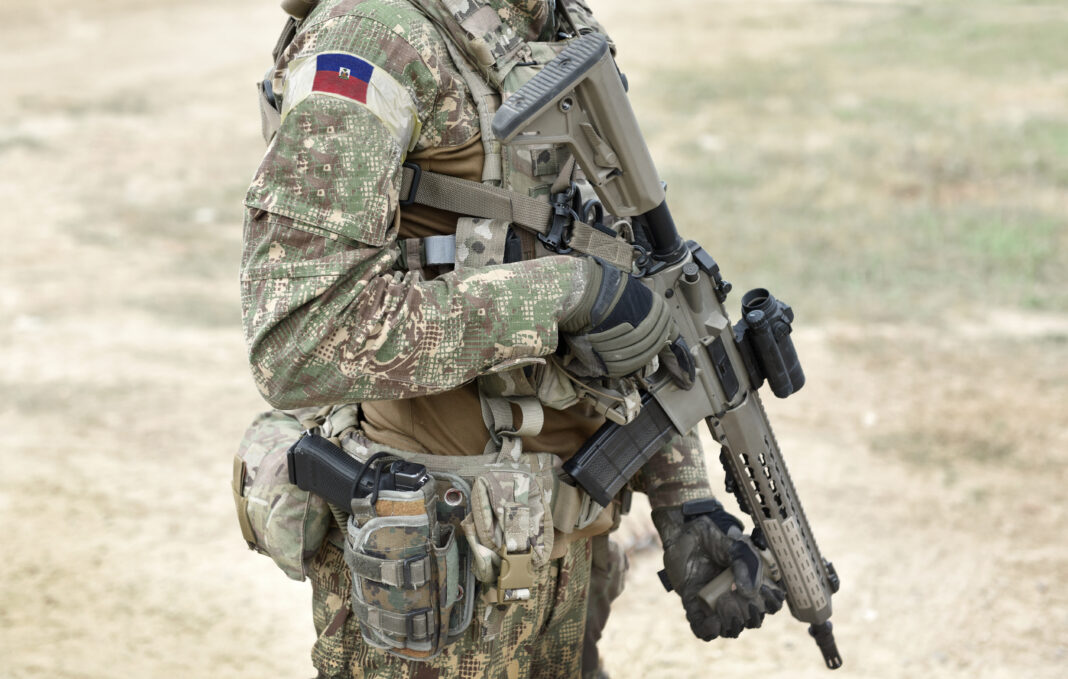by Ambra Visentin
Almost the entire metropolitan area of Port-au-Prince, Haiti, is in the hands of illegal armed gangs – estimated to number close to 300 groups comprising between 15 and 1,500 men – who have emptied the prisons and freed more than 4,000 inmates, attacked the police academy and forced the seaport and the Toussaint Louverture International Airport into a total shutdown. Last Friday, armed members of the ‘Vivre Ensemble’ group, which brings together the ‘G9’ and ‘G Pèp’ coalitions and is led by ‘Barbecue’ (Jimmy Chérizier, ed.), attempted to seize the National Palace and launched massive attacks on at least three police stations.
The country is in chaos and Prime Minister Ariel Henry is in a kind of ‘forced exile’ in Puerto Rico, where he landed after being prevented from landing in the neighbouring Dominican Republic because the authorities had closed the airspace to flights to and from Haiti. The Prime Minister had travelled to Kenya to negotiate aid for the country, but gangs took advantage of his absence to take over.
Despite international appeals to the UN Security Council to help the Haitian government, aid has been slow to arrive. Last week’s escalation has displaced 15,000 citizens. There are now more than 5 million people in need of assistance, just under half the total population. The most critical issue is food insecurity, with a significant increase in cases of malnutrition, especially among children and pregnant women.
Henry’s “provocation”
Violence and calls for Prime Minister Henry’s resignation have increased exponentially over the past year. In December 2023, Guy Philippe, a former paramilitary and drug trafficker, returned to Haiti with the declared intention of ‘dethroning’ Henry and carrying out a peaceful revolution that culminated in demonstrations in Port-au-Prince on 7 February. The capital was back to the calm before the storm. At the end of February, following the Caribbean Community (Caricom) Summit held in Guyana, he announced that he intended to hold elections in 2025 – the first in seven years. This promise, however, was seen as a provocation and an indication of his intention to be in power until then. As a reminder, Henry is not an elected president, but is the interim successor to the assassinated president Jovenel Moïse. For years, the political opposition has been calling in vain for a transitional council and for him to step down from the political scene.
The economic resources and logistical structure of the gangs
Over time, the gangs have developed into structures that are organised socially, economically and logistically, with a strong financial economy. Resources are derived from arms and drug trafficking and a genuine kidnapping industry, with buildings housing kidnapped people awaiting release for ransom. If in 2021 gangs were in control of 30% of the city, last week that figure was over 80%. Road travel is only possible through their checkpoints, where transporters of goods pay ‘protection money’ to the criminal groups to get through. Other ‘fees’ are extorted at the port for unloading the containers. This is then reflected in consumer prices.
International intervention
In 2023, more than 8,400 people have been killed, injured or kidnapped in Haiti – more than double the number of victims in 2022. There are 314,000 Haitians who have fled their homes to escape the violence, many of whom are now living on the streets and in schools and in need of humanitarian assistance.
Following UN approval of the international mission on 2 October last year, Kenya took responsibility for leading the mission on the ground by contributing 1,000 troops, although the deployment was later blocked by a court in Nairobi. After various difficulties, a group of 10 countries pledged $120 million in funding for the mission on the sidelines of the G20 foreign ministers meeting in Rio de Janeiro last week, but the money has yet to reach the country.
On 1 March, an agreement was signed in Nairobi with Kenya to establish a Multinational Security Support Mission (MSM) for Haiti. The agreement, which will see Kenya lead a UN-approved international security mission joined by the Bahamas, Bangladesh, Benin and Chad, was signed despite a Kenyan High Court ruling that the deployment was unconstitutional because the Kenya Defence Forces (KDF) cannot be sent on such missions outside the country. But Ruto said the deployment would go ahead despite the veto.
Caribbean leaders late on Friday called for an emergency meeting in Jamaica today. They invited the US, France, Canada, the UN and Brazil to attend. Meanwhile, the US State Department says Marines have been sent to reinforce security in the city and to evacuate ‘non-essential personnel’ from the US embassy in Haiti.
Cover image by Bumble Dee on Shutterstock
























